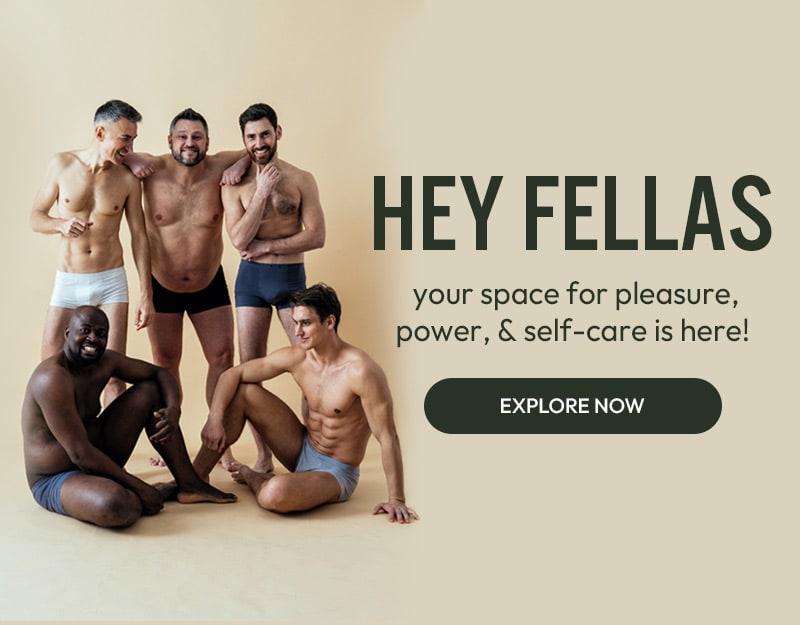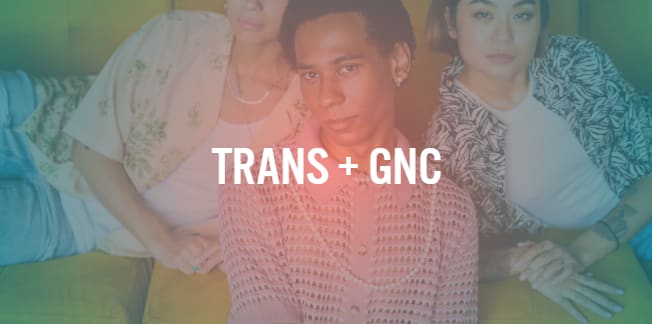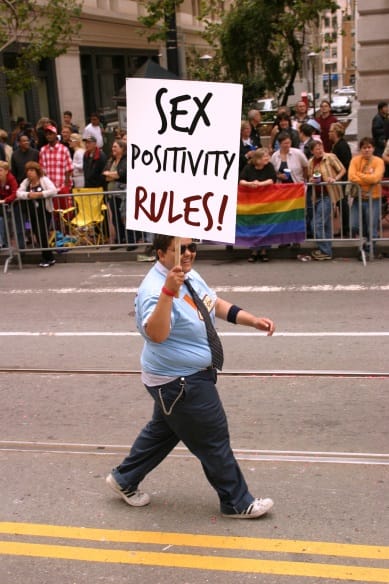Let’s talk Sex Positivity.
Though the phrase “sex positivity” is over 40 years old, it’s been seen a lot more frequently lately- however, with less and less context as to what it actually means.
So, let’s talk Sex Positivity. Specifically, let’s talk some of what it is- and some of what it isn’t.
The term “sex positivity” has been used as a way to acknowledge that human sexuality is diverse and broad. When it comes to sex under a sex positive lens, there is no one definition of "normal”- it’s non-judgmental, and asks us to be aware of (and be in control of) own our judgements.
Sex-positivity is:
- A way to acknowledge that we should have certain sexual rights- including the right to comprehensive, appropriate, pleasure-inclusive, positive sex education.
- A construct that invites us to acknowledge that pretty much any adult consensual sexual activity may be right for someone, and pretty much no act is right for everyone.
- A term that can include anyone- including asexuals, those who do not enjoy sex, those who have experienced sexual trauma, and even those who have never had sex – because sex positivity does not describe the type of sex one does or doesn’t have, it describes their attitude about sexual diversity and people's sexual rights.
Sex positivity cannot exist without consent- fully informed, non-coercive, mutual, enthusiastic consent.
Sex-positivity is NOT:
- A phrase that means "I love sex!" (Though if you do–that's great!)
- A phrase that means "I'm kinky or experimental; I'm not vanilla." Those who enjoy “vanilla” sex can be just as sex positive as kinksters, and in fact, not all kinksters are sex-positive!
- A phrase that can EVER be used this way: "If you were really sex positive, you'd have sex with me/do that kinky thing I want to try/open our relationship/etc." You do not have to be “down for anything” to be sex positive.
- To be used as a source of judgement or shaming of other people–including any sexual identity, gender identity, romantic or sexual desire or preference, those who are monogamous, non-kinky folk, celibate people, or anybody else.
- A way to judge others for not enjoying sex “enough” or having less desire for sex.
- A pass to openly share details of your, your partners’, or anyone else’s sex lives without their consent to share and the consent of the person being shared with to listen.
- A license to assume that your sexual response, experience, desires, and feelings are or should be shared by everybody else.
- A way to legitimize or defend any non-consensual acts in any regard.
If anyone tries to use the notion of sex-positivity to judge someone else's sexual orientation, gender expression, sexual choices, or sexual response, they are not behaving in a sex-positive fashion. Period.
When you are sex-positive, you get that not everybody gets down like you may- and that's OK. As in,
- “I really like using this sex toy, but you really enjoy this one.” What works for some may not be the right fit for everyone.
- “I like the concept of polyamory, but that doesn’t invalidate monogamous relationships- I just don’t want to be a part of one.”
- “I grew up with beliefs and experiences, in a particular cultural context that affect my sexual identity; though other people may have grown within other cultural contexts and may not share my views.”- and that’s OK.
Remember, sex positivity is not all about us and what we want. More than anything, sex positivity is a way to critique our current culture–which is still so very far from the mark, despite all the recent strides we’ve taken.
What would it take for our culture to be fully sex-positive? What are the elements that would get us there? How can we access true respect for other people's sexualities?
We invite you to think about that question–it is a valuable lens in a personal context and in activist work, and while we continue to unlearn and re-learn—to help make our culture a bit more sex positive every day.
Content derived from Dr. Carol Queen’s “What Sex-Positivity Is--- And Is Not” with consent from the Author. Read the original piece here.









